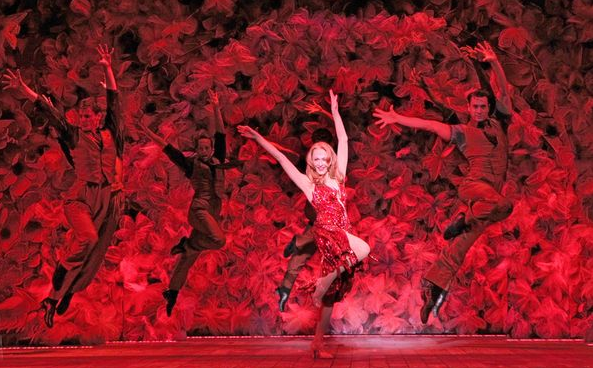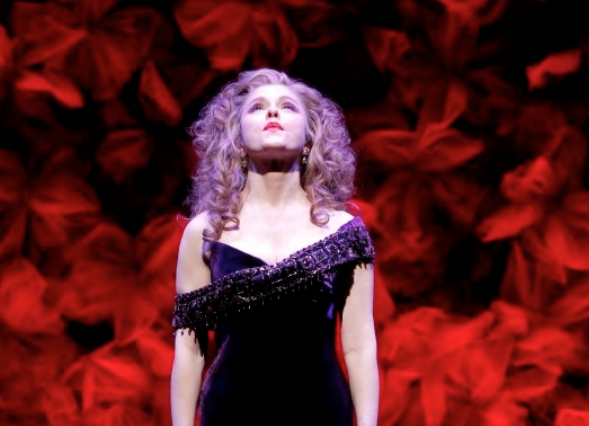Of course words matter: as someone who writes for a living, I would say that, wouldn’t I? So it’s necessary to be precise when using them. And its undoubtedly the case that some words are more loaded than others, admitting of different interpretations and triggering reactions that may be disproportionate to their actual intention or meaning.
Take the word ‘flop’. The other day on Twitter someone I follow posed the question:
What are people’s favourite FLOP Musicals, and why?
Amy Hart — former Love Island contestant and massive theatre fan and champion — replied:
In fact, Amy and I bonded over our love for Made in Dagenham — when she first introduced herself to me at a West End first night, she specifically cited my championing of that show as the reason she followed me.
I joined the thread on flop musicals, and cited two shows of evidence that a commercial flop doesn’t mean a show is necessarily bad:
There ensued an interesting conversation over the meaning and use of the word flop between myself and another tweeter which you can follow from my reply in this thread.
I was simply employing the INDUSTRY definition of flop, which is whether it recoups on its original financial investment. If it recoups before it closes, it’s a hit; if not, it’s a flop. Sometimes a show may move from one column to the other, if subsequent earnings mean original investors get their money back in the end — as happened to the 1997 Broadway edition of Frank Wildhorn’s Jekyll and Hyde.


There’s no value judgement on the show’s worth when its called a flop: just whether it makes money or not. It may have succeeded in every other way. Many “flops” were also GREAT shows – Sondheim’s 1971 musical masterpiece Follies, for example, never recouped its $800,000 investment; neither did its two subsequent Broadway outings, the short-lived 2001 revival directed by Matthew Warchus, or the 2011 production that transferred from Washington DC’s Kennedy Center, featuring Bernadette Peters as Sally Durant Plummer (pictured above right), and the late, great Jan Maxwell as Phyllis Stone (pictured above left).
But sometimes, of course, it’s about the art more than the money; as Michael Kaiser, then President of Kennedy Center, said in a Huffington Post feature at the time of the latter’s Broadway closing in 2012,
“While the production did not recoup its full investment on Broadway, it did far better financially than I had planned. It also brought more visibility to the Kennedy Center than any other single production in the Center’s history. Time will tell if this visibility contributes to the fiscal health of the Kennedy Center. But for me, Follies is representative of the large-scale, ambitious, risky project that arts organizations need to produce if they are to capture the imagination of new and diverse funders and audience members. It also demonstrates the benefits of long-term artistic planning. We decided to produce Follies in 2006 — a full five years before the production was mounted at the Kennedy Center. This gave us the time needed to assemble an artistic team and a cast. It also gave us time to find a group of donors who would support this large, expensive project.”
By the same token, many “hits” are also TERRIBLE shows! (Don’t get me started on Rock of Ages, anyone…. Yes, there’s clearly an audience who enjoy it; but it’s just not for me).
So let’s try another emotive word: amateur. I once suggested that London fringe productions that didn’t pay their actors simply designate themselves amateur productions, and of course all hell broke loose. Because, understandably, actors who want to be seen as ‘professionals’ didn’t like the negative association with work done more for enthusiasm and pleasure than creative and professional advancement. But without being paid, it’s merely a hobby, not a job.
On Twitter, the person I was debating with tried to introduce the offer of free services to charitable enterprises; but this of course is entirely different. They’re offering free professional services in return for helping the charity; whereas actors who work for free for venues that are otherwise making money out of their labours are no different to those working in amateur theatres up and down the land, except that the amateur actors have more dignity: they’re doing it purely for fun, and any money made is simply to fund putting on the shows.
We need to use words honestly — if the last four years of Trump’s serial lies and “alternative facts” that were promoted by himself, his successive press secretaries Sean Spicer, Sarah Huckabee Sanders and Kayleigh McEnany (each more brazen than the last) and communication advisers like Kellyanne Conway and the short-lived Anthony Scaramucci are anything to go by, we need a reckoning with the truth, however uncomfortable they may be. Trump’s era of disinformation was brought to an end yesterday at noon (Eastern time) with Joe Biden’s inauguration.
Just as we now can call a liar a liar, perhaps we can also call a show that fails to make money a flop, and an actor who doesn’t demand a fee for his acting services an amateur.
